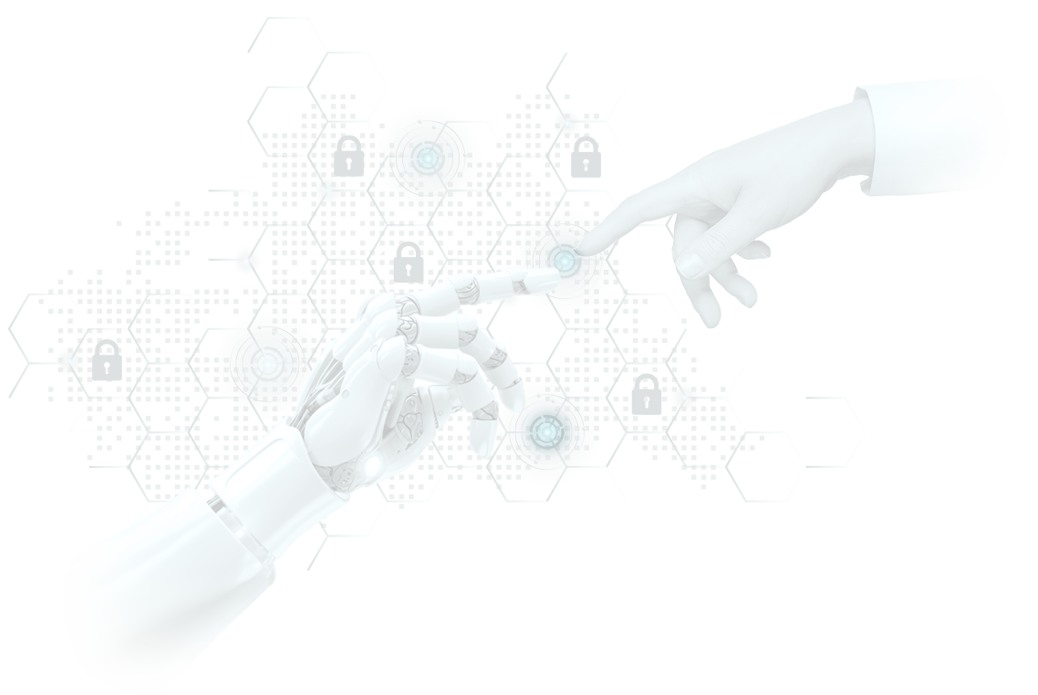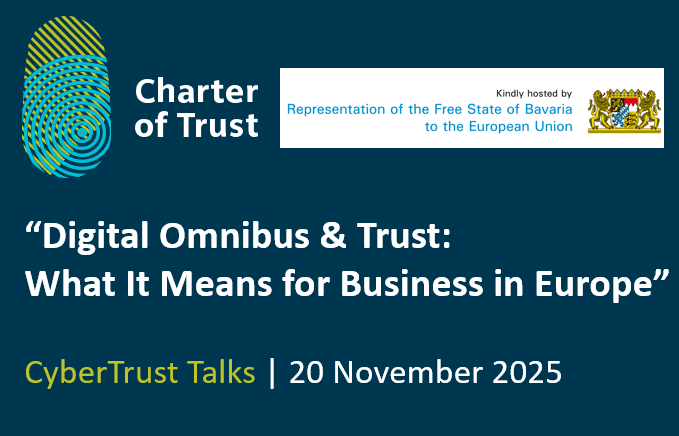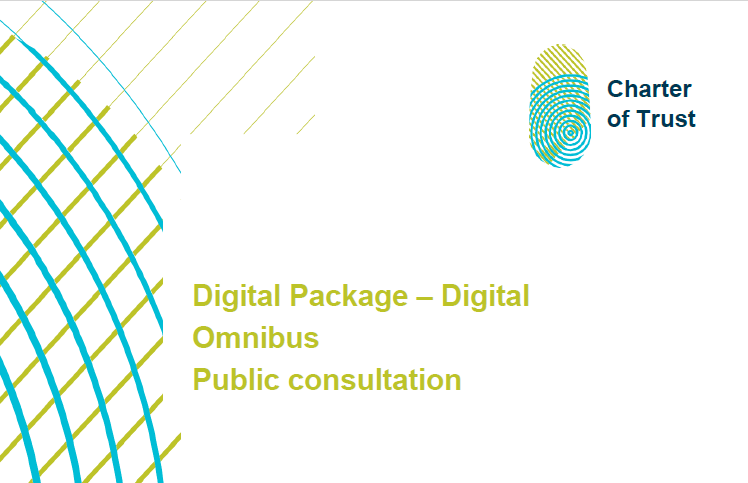

Emerging Technologies
Guide businesses on AI & Quantum Cryptography challenges.
The mission of this group is to address and provide guidance to businesses on how to manage the complexities triggered by AI and Post Quantum Cryptography and their impact on cybersecurity and trust.
AI is transforming the cybersecurity landscape for businesses, offering both unprecedented opportunities and complex challenges. On the positive side, AI enhances cybersecurity by automating threat detection, improving response times, and predicting potential security breaches through advanced analytics and machine learning algorithms. These capabilities enable businesses to proactively defend against cyber threats, minimize vulnerabilities, and enhance overall security posture.
However, the integration of AI also introduces new cybersecurity risks. AI systems can themselves become targets for cyberattacks, potentially being manipulated or exploited by malicious actors. Additionally, the complexity and opacity of some AI algorithms can make it difficult to identify and mitigate biases and vulnerabilities, leading to security gaps.
In light of the regulatory advancements on AI, the Charter of Trust Partners aim to provide clear guidelines for ensuring innovative but also secure and compliant with regulatory requirements.
Post-quantum safety represents a pivotal shift in the cybersecurity landscape, addressing the imminent threats posed by quantum cryptography to current cryptographic systems.
The impact of post-quantum safety on cybersecurity for businesses is profound. Implementing post-quantum cryptographic algorithms will become essential to safeguard data against future quantum attacks.
This involves transitioning to quantum-resistant encryption methods, which can be a complex and resource-intensive process, requiring significant updates to existing systems and protocols.
As such, the Charter of Trust Partners aim to provide the necessary guidance to critical businesses on how to adopt post-quantum safety measures and rethink their cybersecurity strategies to ensure long term resilience and security of their data.

Our AI workstream focuses on the implementation of the AI Act among other cybersecurity challenges and opportunities brought by these technologies. The work of our Partners in structured around the following topics:

BANNED PRACTICES
Support in assessing Partners’ AI systems, identifying information required for governance compliance and inform internal AI Governance Entity.

GPAI RULES
Work in 2025.

MINIMUM LITERARY REQUIREMENTS
Basic AI concepts, Ethical considerations and potential risks of AI, Data governance and privacy, Human oversight and the role of humans in AI systems, specific requirements for high-risk AI systems.

INTERNAL GOVERNANCE AND TRUST LABEL
Ongoing work.
Latest news, publications, events

A Quantum Leap for Cybersecurity: The Charter of Trust’s PQC Ambition

3rd CyberTrust Talk - Digital Omnibus & Trust - What it Means for Business in Europe?
With the European Commission unveiling its landmark Digital Omnibus Package just one day before, this event is your exclusive opportunity to be among the first to explore its real-world impact on business and the digital economy across Europe.
What to Expect:
Opening remarks by:
Dr. Armin Hartmuth, Director, Representation of the Free State of Bavaria to the European Union
Dr. Sumit Chanda, COO, Atos Group Security & Business Lines CISO, and Co-Chair of the Charter of Trust.
Keynote Address:
Despina Spanou, Deputy Director General for Cybersecurity and Trust, European Commission (DG CNECT), will share first-hand insights into the objectives and expected impact of the Digital Omnibus Package.
Expert Panel Discussion featuring:Moderated by Sudhir Ethiraj, Global Head of Cybersecurity Office, CEO Business Unit Cybersecurity Services, TÜV SÜD.
Despina Spanou, Deputy Director General for Cybersecurity and Trust, European Commission (DG CNECT)
Kia Slæbæk Jensen, Cyber Advisor, Permanent Representation of Denmark to the EU
Suzanne Button, Field CTO EMEA, Elastic
Tomas Jakimavicius, Director European Government Affairs, Microsoft
Yana Humen, AI and Cybersecurity Policy Manager, Government and Regulatory Affairs, IBM
Interactive Q&A: Bring your questions and join the conversation on regulatory coherence, innovation, and the future of digital governance in Europe.
Closing remarks by Maria del Pino Gonzalez-Junco, Director of the Charter of Trust
Networking Lunch: Connect with peers, policymakers, and industry leaders in an informal setting.
Why attend?
Gain first-hand insights into the EU’s Digital Omnibus Package—straight from the policymakers and experts shaping it.
Understand the immediate implications for your business and how to navigate upcoming changes.
Be part of a strategic dialogue that could influence the future of digital regulation in Europe.

Read the Charter's contribution to the European Commission's public consultation on the Digital Omnibus Package
The Charter of Trust welcomes the Commission’s initiative to harmonize digital regulations across the EU, aiming to reduce administrative burdens while maintaining high standards of security and privacy. Representing the unified views of its Partners, this paper addresses all key legislation within the scope of the Digital Omnibus and offers comprehensive recommendations. It emphasizes the need for a unified incident reporting system, risk-based notification requirements, and fair compliance processes to minimize regulatory overlap. The Charter calls for clearer liability clauses, global recognition of certifications, and stronger supply chain security.
In data regulation, the Charter advocates ensuring alignment between the rules on data intermediation services under the DGA and B2B data sharing under the Data Act and extending exemptions to mid-cap companies, all while safeguarding trade secrets. For artificial intelligence, the paper recommends a phased approach to new requirements, integrated conformity assessments, harmonized compliance templates, and clear definitions, supported by sector-specific guidance and transparent AI categorization. The Charter also encourages the European Commission to ensure that ePrivacy reform is future-proof, fosters innovation, and reflects the needs of both businesses and consumers. Finally, it recommends robust security standards and cross-border recognition for the EU Business Wallet, with industry involvement in technical standards and integration with data access systems.
Collectively, these measures are designed to foster innovation, resilience, and trust in the EU’s digital landscape, allowing businesses to thrive in a coherent and future-ready regulatory environment.



